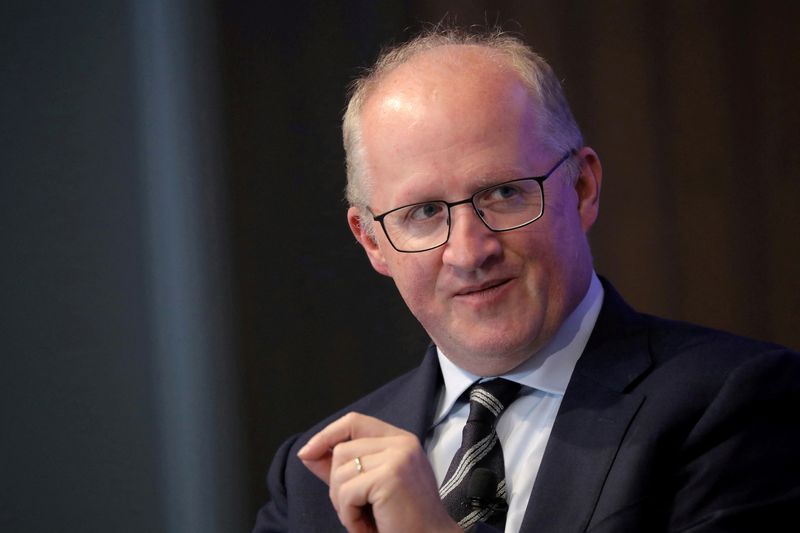FRANKFURT -The ultra-low inflation seen in the euro zone until recently are unlikely to return even after the pandemic is over, the European Central Bank’s chief economist Philip Lane said, citing changes in the global economy among other factors.
Lane had dismissed the notion of a new era for inflation until recently but he has been revising his view, setting the stage for a policy shift at the ECB after nearly a decade of ultra-low interest rates and massive bond purchases.
“There are several factors indicating that the excessively-low inflation environment that prevailed from 2014 to 2019 (a period over which annual inflation averaged just 0.9%) might not re-emerge even after the pandemic cycle is over,” Lane told an MNI event.
He credited the unprecedented economic support deployed by euro zone governments and the ECB itself in response to the coronavirus pandemic, but also structural changes such as fewer exports by China.
The ECB is under market pressure to raise rates on bank deposits, currently at minus 0.5%, in the face of stubbornly high euro zone inflation. This hit 5.1% in January, well over twice the ECB’s 2% target.
Lane said the pace of any policy change would depend on whether the ECB expected inflation to settle below, at or above 2%.
“The size and frequency of interest rate moves depend on the kind of regime you think you’re in,” Lane said. “I am not saying (25 basis points) is a bad increment but there are other increments possible.”
Since he did not anticipate runaway inflation, Lane said “gradualism” would make sense in the present circumstances – a point also made earlier by fellow ECB policymaker and Bank of Spain governor Pablo Hernandez de Cos.
The International Monetary Fund backed the ECB’s easy monetary stance in a blog post on Thursday, predicting inflation would fall below the central bank’s target after “transient boosts” from supply snags that may extend into next year.
The ECB will publish its own projections on March 10, when it is also expected to chart a path for winding down its bond-buying stimulus programme – a precursor to higher rates.
Its policymakers have credited bond purchases for keeping the economy afloat during the coronavirus pandemic but they are also growing worried about the risks of having hundreds of billion euros worth of debt on the ECB’s own balance sheet.
(Reporting By Francesco CanepaEditing by Gareth Jones and John Stonestreet)
